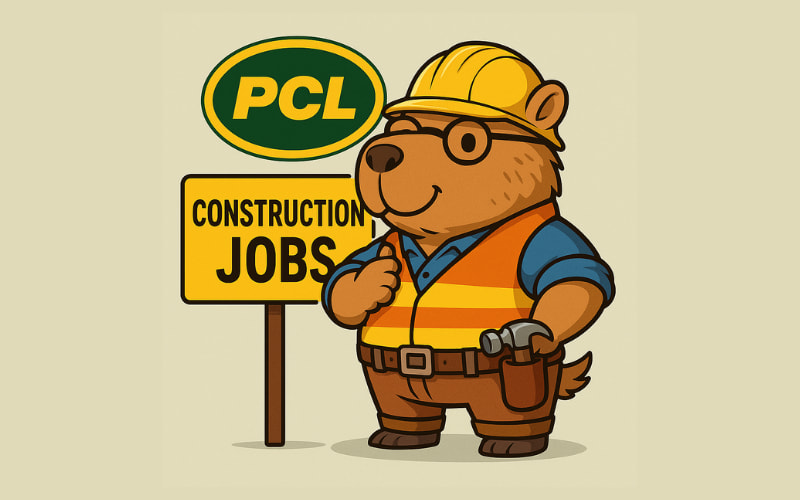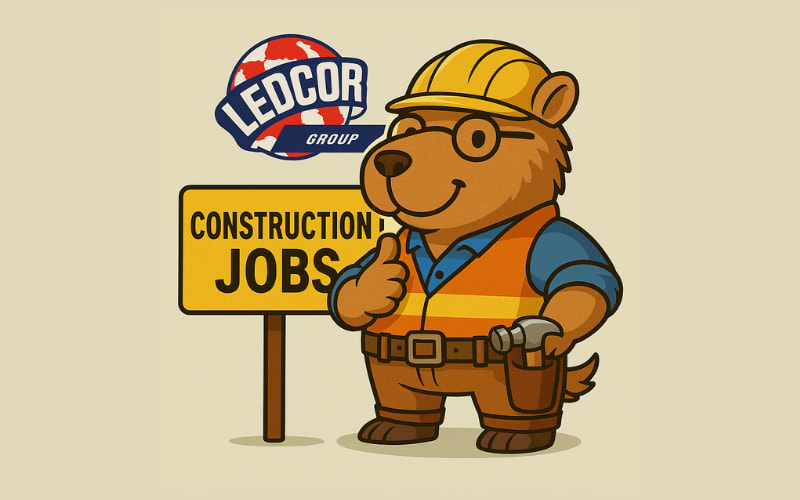While Everyone Else Is Downsizing, This Sector Is Desperate for Workers

While many industries in Canada are currently facing hiring freezes or layoffs, the construction sector is experiencing a unique trend: steady demand for skilled workers.
Even with the country’s rising unemployment rate and ongoing economic challenges, construction-related jobs remain among the most stable and promising employment paths for both residents and immigrants.
Why Is Construction Booming When Other Sectors Struggle?
Canada’s need for housing and infrastructure continues to grow. Major urban centers like Toronto, Vancouver, and Calgary are expanding, and both public and private investments in construction projects remain strong. This steady demand is largely driven by:
- Population growth and immigration, increasing the need for new homes and apartments.
- Aging infrastructure, requiring ongoing maintenance and modernization.
- Government-funded housing and green energy projects, part of Canada’s long-term economic recovery and sustainability plan.
Most In-Demand Construction Jobs in 2025
According to multiple labor market reports and job boards across the country, the following roles are experiencing high demand:
| Job Title | Description | Average Salary (CAD) |
|---|---|---|
| Carpenter | Builds and installs structures and fixtures | $55,000 – $75,000 |
| Electrician | Installs and maintains electrical systems | $60,000 – $90,000 |
| Plumber | Repairs and installs water systems | $58,000 – $85,000 |
| Welder | Works with metal components and structures | $50,000 – $75,000 |
| HVAC Technician | Maintains heating and cooling systems | $55,000 – $80,000 |
| Heavy Equipment Operator | Operates machines for earthmoving and loading | $60,000 – $85,000 |
These are not just jobs—they’re careers with growth potential and long-term security. For workers willing to get certified or go through apprenticeship programs, the job market remains open and rewarding.
Labor Shortage: A Long-Term Problem

One of the biggest reasons for the continued hiring in construction is a nationwide labor shortage. Over the next decade, more than 700,000 skilled trade workers are expected to retire. Meanwhile, fewer young people are choosing trades as a career path, leading to a gap in the workforce that continues to widen.
This shortage is so critical that the Canadian government has launched national campaigns to encourage more people to enter the skilled trades. They are also adjusting immigration policies to bring in qualified workers from abroad.
A Career Without a College Degree
One major advantage of construction work is that it doesn’t require a university diploma. Many roles are accessible with a high school education and hands-on training. Apprenticeship programs allow workers to earn while they learn, making this an attractive route for those looking to avoid student debt.
Plus, skilled trade workers often earn wages comparable to or even higher than some university graduates—especially when overtime or project bonuses are included.
Job Security and Career Advancement
Construction offers not only stability but also room to grow. Experienced workers can become site supervisors, project managers, or even start their own contracting businesses. Many companies offer benefits such as:
- Paid training and upskilling programs
- Health and dental insurance
- Retirement savings plans
- Union protections and negotiated wages
How to Find and Apply for These Jobs: Companies Hiring Today
If you’re ready to start your job search, knowing where to look is key. Many construction companies are actively hiring and offer online applications through their careers pages. Here are three of the largest and most active employers in the construction industry right now:
PCL Constructors
Regularly hiring for roles such as site superintendent, apprentice carpenter, and safety coordinator. Their job board features listings across multiple provinces. You can apply directly on their website by submitting a tailored resume and cover letter.
EllisDon
Offers openings in areas like electrical work, project coordination, and general labor. Their application portal allows users to search by location and job category. Make sure to highlight your field experience and safety certifications.
Ledcor Group
Frequently looking for equipment operators, welders, and skilled laborers, especially in Alberta and British Columbia. Applications can be completed online with the option to create a candidate profile for future openings.
To explore even more job opportunities, use trusted platforms such as Indeed Canada. You can filter results by job type, location, salary range, and employer. Be sure to set up job alerts to stay updated on new listings.
When applying, make sure your resume is tailored to the job and clearly highlights any certifications, training, or project experience. If you are an international applicant, mention your willingness to relocate and your immigration status.
Is This Career Path Right for You?
If you enjoy working with your hands, being outdoors, and seeing tangible results from your labor, construction might be a great fit. These jobs require physical stamina, attention to detail, and teamwork—but they also offer pride in craftsmanship and community impact.
People from various backgrounds—newcomers, high school graduates, or those looking for a career change—are welcome in this industry.
Final Thoughts
The construction industry in Canada is not just surviving—it’s thriving. As the country navigates economic uncertainty, the need for skilled workers in this field remains strong. For job seekers looking for stable employment, competitive wages, and a clear path to growth, construction offers a compelling option.
Want to get a head start? Check out our next guide: Free online courses to kickstart your career in construction.

Free Online Courses for Construction Jobs
Learn construction skills online for free and boost your chances of landing a high-demand job — from anywhere.






